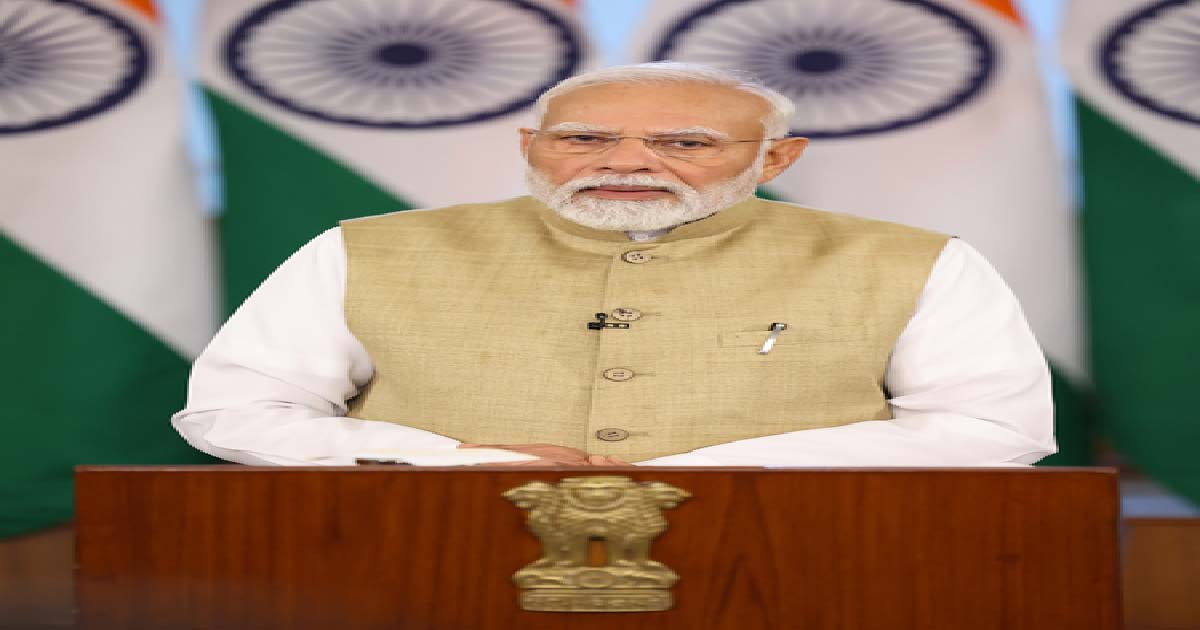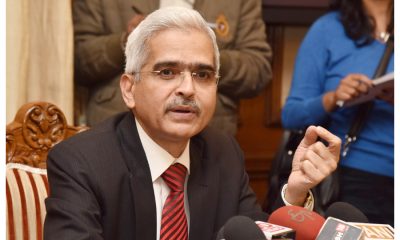Business
India’s Oct retail inflation inches-up on high food, input prices
India’s October retail inflation inched-up on sequential basis on the back of a marginal rise in food prices along with high fuel and commodity prices.
Accordingly, data furnished by the National Statistical Office showed that Consumer Price Index (CPI) inched-up to 4.48 per cent last month from 4.35 per cent in September 2021.
However, on YoY basis, the rise in last month’s retail inflation was slower than the 7.61 per cent rise recorded for October 2020.
The macro-economic data assumes significance as retail inflation remained we ll within the range of the Reserve Bank of India’s set target of 2-6 per cent for CPI inflation.
Region-wise, the CPI Urban rose to 5.04 per cent last month from 4.57 per cent in September and the CPI Rural came down to 4.07 per cent from 4.13 per cent.
As per the NSO data, the rate of rise in Consumer Food Price Index increased to 0.85 per cent last month from 0.68 per cent in September.
The CFPI readings measure the changes in retail prices of food products.
In terms of CPI YoY inflation rate, pulses and products’ prices jumped by 5.42 per cent in October 2021.
Besides, meat and fish prices rose by 7.12 per cent, however, eggs became cheaper by 1.38 per cent, nevertheless, the overall price of food and beverages category was up 1.82 per cent and oils and fats prices rose 33.50 per cent.
On the other hand, vegetable prices declined by 19.43 per cent.
Furthermore, as per the official data, the inflation rate for fuel and light was at 14.35 per cent.
In addition, sub-group of clothing and footwear showed a price acceleration of 7.53 per cent.
“Despite base effect, still-high fuel costs, input cost pressures and season al turn in some food prices in coming months etc. could even see inflation rise towards more than 6.2 per cent later in the fiscal year,” said Madhavi Arora, Lead Economist, Emkay Global Financial Services.
“We revise our forecast by 25bps to 5.5 per cent for FY22, as we reckon supply-side bottlenecks, higher imported commodity inflation and high pump prices would pose a countering upside pressure on inflation.”
According to Aditi Nayar, Chief Economist, ICRA: “The uptick in the YoY CPI inflation in October 2021 relative to the previous month, while mild, was pretty broad-based, with the hardening in the inflation for clothing and footwear, and miscellaneous items suggesting that reviving demand is nudging producers in some sectors to pass through the input price pressures, resulting in a pickup in the core inflation to 5.8 per cent in that month.”
Business
New labour codes to boost formalisation, gender parity of India’s workforce: Industry leaders

New Delhi, Nov 22: India’s top industry bodies and staffing leaders on Saturday labelled the implementation of the Four Labour Codes a landmark step toward formalising the workforce, expanding social security, and aligning India’s labour framework with global standards.
The India Electronics & Semiconductor Association (IESA) said the reforms would significantly benefit the high-technology sectors by enhancing workforce stability, improving safety standards, and enabling labour flexibility with social protection.
“Mandatory appointment letters, universal minimum wages, and pan-India social security coverage (including ESIC expansion) ensure greater formalisation. This strengthens worker confidence — critical for skill-intensive manufacturing such as fabs, ATMP, component manufacturing and design centres,” said Ashok Chandak, President, IESA and SEMI India.
Provisions for fixed-term employment, faster dispute resolution, single licensing, and simplified compliance directly support the scaling of high-tech manufacturing clusters, the statement said.
Meanwhile, parity of benefits for Fixed-Term Employees (FTE) and expanded social security protections ensure a balanced, worker-centric ecosystem, he added.
Sachin Alug, CEO of NLB Services, a technology and digital talent provider, said the reforms were long overdue for India’s gig economy and will offer protection to a fast-growing but previously unorganised workforce.
The new laws are also expected to promote gender parity in the workforce by opening doors to wider opportunities across diverse sectors. Additionally, other groups such as”
He also pointed out that new laws will promote gender parity and contract workers, youth workers, and fixed-term employees will benefit from clearer working-hour norms, expanded social security, minimum wage protections, and health benefits.
“By simplifying compliance and unifying the regulatory framework, the codes can significantly expand formal employment, bringing millions of workers, especially in industries that rely on contract, temporary, and project-based roles, into the fold of structured, protected work,” said Balasubramanian A, Senior Vice President, TeamLease Services.
“National floor minimum wage creates a consistent benchmark across states and is an important step in India’s evolution from a minimum-wage economy to a living-wage economy,” he noted.
Suchita Dutta, Executive Director of Indian Staffing Federation (ISF), said the codes simplify compliance for employers, reduce regulatory burdens, and foster a more flexible hiring environment — crucial for the staffing industry, which has long advocated for such changes to unlock formal job creation.
The government, on November 21, implemented the Four Labour Codes — the Code on Wages (2019), Industrial Relations Code (2020), Code on Social Security (2020), and Occupational Safety, Health and Working Conditions (OSHWC) Code (2020) — repealing and rationalising 29 existing central labour laws.
Business
Nifty, Sensex continue rally for second week despite FII outflows

Mumbai, Nov 22: Indian equity benchmarks made marginal gains for the second week, supported by stronger second quarter (Q2) earnings, easing inflation and optimism around the India-US trade negotiations.
Benchmark indices Nifty and Sensex edged higher 0.68 and 0.50 per cent during the week to close at 26,068 and 85,231, respectively.
Analysts said that a moderation in FII selling due to expectations of earnings upgrades in H2 FY26 also supported the rally. However, markets turned volatile on Friday amid weak global cues. The Nifty fell after failing to cross its previous all-time highs of 26,277, ending its two-day advance.
Broader indices underperformed, with the Nifty Midcap100 and Smallcap100 ending the week down 0.76 per cent and 2.2 per cent, respectively.
Though IT stocks faced selling pressure due to weakness in the US tech shares, it was the biggest weekly gainer. Nifty Auto and Services followed as the secoral gainers during the week. On Friday, metals and realty were the worst hit, both dropping over 2 per cent, followed by PSU banks, financial services and media.
A better-than-expected non-farm payroll dimmed hopes of a US Federal Reserve rate cut in December putting pressure on global equities. Resultantly gold also witnessed selling pressure while INR declined to a new low.
The oil prices declined due to the US’s renewed push for a Russia-Ukraine peace proposal.
“The market may witness some profit booking in the near term if the pressure on Indian rupee persists. In the week ahead, investors will also have a close vigil on trade developments and economic data like IIP and Q2 FY26 GDP data to get the market direction,” said Vinod Nair, Head of Research, Geojit Investments Limited.
Analysts said that they expect markets to remain firm next week supported by buying on dips, improving demand outlook in Q3 and resilient flows.
Business
Four Labour Codes are most progressive reforms for workers since Independence: PM Modi

New Delhi, Nov 21: Prime Minister Narendra Modi on Friday said the government has given effect to the Four Labour Codes, which are one of the most comprehensive and progressive labour-oriented reforms since Independence.
“It greatly empowers our workers. It also significantly simplifies compliance and promotes Ease of Doing Business,” the Prime Minister remarked.
He said that these Codes will serve as a strong foundation for universal social security, minimum and timely payment of wages, safe workplaces and remunerative opportunities for our people, especially ‘Nari Shakti and Yuva Shakti’.
“It will build a future-ready ecosystem that protects the rights of workers and strengthens India’s economic growth. These reforms will boost job creation, drive productivity and accelerate our journey towards a Viksit Bharat,” he added.
The four labour codes include the Code on Wages, 2019, the Industrial Relations Code, 2020, the Code on Social Security, 2020 and the Occupational Safety, Health and Working Conditions Code, 2020, with effect from November 21, rationalising 29 existing labour laws.
With the implementation of the Labour Codes, it has now become mandatory for employers to issue appointment letters to all workers, which provides written proof to ensure transparency, job security, and fixed employment. Earlier, no mandatory appointment letters were required.
Under Code on Social Security, 2020, all workers, including gig and platform workers, will get social security coverage. All workers will get PF, ESIC, insurance, and other social security benefits. Earlier, there was only limited security coverage.
Under the Code on Wages, 2019, all workers will receive a statutory right minimum wage payment which wages and timely payment will ensure financial security. Earlier, minimum wages applied only to scheduled industries or employments; large sections of workers remained uncovered.
The Labour codes also ensure that employers must provide all workers above the age of 40 years with a free annual health check-up and promote a timely preventive healthcare culture. Earlier, there was no legal requirement for employers to provide free annual health check-ups to workers.
The codes also make it mandatory for employers to provide timely wages, to ensure financial stability, reducing work stress and boosting the overall morale of the workers. Earlier, there was no mandatory compliance for employers’ payment of wages.
The new law permits women to work at night and in all types of work across all establishments, subject to their consent and required safety measures. Women will also get equal opportunities to earn higher incomes in high-paying job roles. Earlier, women’s employment in night shifts and certain occupations was restricted.
The new codes also extend ESIC coverage and benefits pan-India – voluntary for establishments with fewer than 10 employees, and mandatory for establishments with even one employee engaged in hazardous processes.
Social protection coverage will be expanded to all workers. Earlier, ESIC coverage was limited to notified areas and specific industries; establishments with fewer than 10 employees were generally excluded, and hazardous-process units did not have uniform mandatory ESIC coverage across India.
The codes also ease the compliance burden for workers by providing for single registration, a PAN-India single license and a single return. Earlier, multiple registrations, licenses and returns across various labour laws were required.
-

 Crime3 years ago
Crime3 years agoClass 10 student jumps to death in Jaipur
-

 Maharashtra1 year ago
Maharashtra1 year agoMumbai Local Train Update: Central Railway’s New Timetable Comes Into Effect; Check Full List Of Revised Timings & Stations
-

 Maharashtra1 year ago
Maharashtra1 year agoMumbai To Go Toll-Free Tonight! Maharashtra Govt Announces Complete Toll Waiver For Light Motor Vehicles At All 5 Entry Points Of City
-

 Maharashtra1 year ago
Maharashtra1 year agoFalse photo of Imtiaz Jaleel’s rally, exposing the fooling conspiracy
-

 National News1 year ago
National News1 year agoMinistry of Railways rolls out Special Drive 4.0 with focus on digitisation, cleanliness, inclusiveness and grievance redressal
-

 Maharashtra1 year ago
Maharashtra1 year agoMaharashtra Elections 2024: Mumbai Metro & BEST Services Extended Till Midnight On Voting Day
-

 National News1 year ago
National News1 year agoJ&K: 4 Jawans Killed, 28 Injured After Bus Carrying BSF Personnel For Poll Duty Falls Into Gorge In Budgam; Terrifying Visuals Surface
-

 Crime1 year ago
Crime1 year agoBaba Siddique Murder: Mumbai Police Unable To Get Lawrence Bishnoi Custody Due To Home Ministry Order, Says Report
















